How I Found My Literary Agent (By Me and My Literary Agent)
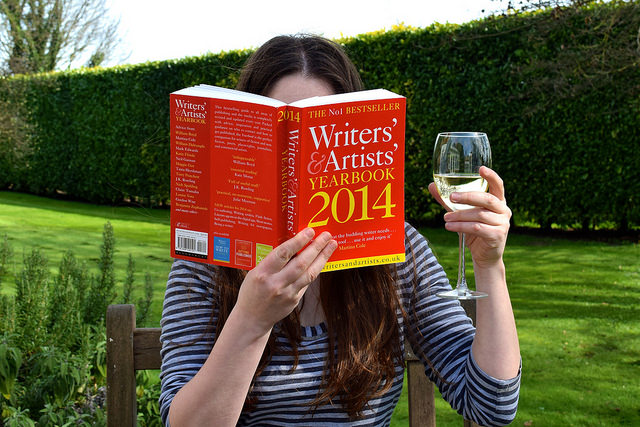 Ever since I was about 13 years old, I wanted to write and publish a book. When I was 16 (the year I finished NaNoWriMo for the first time, the challenge where every November you take part you write a 50,000 word novel in 50 days) I read, cover to cover, that years copy of the Writers and Artists Yearbook, which clued me in all I needed to know about publishing my first book. And the biggest thing I realised I needed? I needed a first rate literary agent. So, off the back of my announcement that I’ll be publishing my first book in August (!) I thought I’d put together the story of how I found my literary agent, a list of resources I found helpful, and some practical tips from my own literary agent, the wonderful Diana Beaumont at Marjacq.
Ever since I was about 13 years old, I wanted to write and publish a book. When I was 16 (the year I finished NaNoWriMo for the first time, the challenge where every November you take part you write a 50,000 word novel in 50 days) I read, cover to cover, that years copy of the Writers and Artists Yearbook, which clued me in all I needed to know about publishing my first book. And the biggest thing I realised I needed? I needed a first rate literary agent. So, off the back of my announcement that I’ll be publishing my first book in August (!) I thought I’d put together the story of how I found my literary agent, a list of resources I found helpful, and some practical tips from my own literary agent, the wonderful Diana Beaumont at Marjacq.
I’d spent a couple of years mulling over writing a book, so actually before I had a real outline of what I was going to actually write down, I had a spreadsheet. It was ready, for when the time came, with all of the literary agents and their agencies that I thought would be a good fit for me ranked from one to wherever. This was the order I was going to contact these agents in. But first, a bit more about what literary agents do, and why, if you’re looking to publish a book, you’ll probably need one.
What does a literary agent actually do?
To put it simply, your literary agent is your cheerleader. They will help you craft your book proposal (more on that in a moment), get you in touch with and pitch your proposal to publishers, attend all your meetings with you, help you make sure you’re getting the best deal on your contract, and act as a general champion and sounding board throughout the whole process. Mine is also a general rockstar who helps me through life decisions and panic moments even if they’re only vaguely related to my writing career. Just lightly touching on the money side of things, for all of this they take a percentage of what you earn through the work they represent you for. I don’t think the percentage of what I earn my agent makes is enough to cover all she does for me – so yes, I think the cost is more than worth it versus going it alone!
So how did you find your literary agent?
I’ve got friends with stories of how agents emailed them out of the blue asking if they were interested in writing a book, and others who were approached by publishers, wrote their first book, and decided it would be much easier to work with an agent on their second one. However, as I knew I wanted an agent, I knew there was one place and one place only that held the comprehensive list of British literary agencies, agents, if they accept unsolicited manuscripts (so if you can randomly write to them with your material rather than them asking you for it), and what sort of books they looked for: The Writers And Artists Yearbook. You might recognise them from that time I blogged for their website during NaNoWriMo one year, but essentially, an edition for people writing for adults, and an edition for people writing for children and teens is published every year, and holds some frankly brilliant advice on why you need an agent, what agents do, what publishers do, about the whole process, and of course the listings. J.K. Rowling always cites it as a resource she used and loved, and if you ignore the rest of this post, get this book. I sat down with mine, my iPad and a glass of wine each night during my final year of university, looking into agents and deciding who was right for me.
Choosing The Right Agent For Me
So exactly what was I doing when I was compiling that list and getting busy with my highlighters and coloured pens? Well, I needed to identify agents who I’d be a good fit for. I was looking to pitch a cookbook, but I also write fiction, so looking to the future, an agent who just handled non-fiction would have been a bad idea. I also looked into which other authors agents and agencies represented: would I fit in at the agency, was there someone too similar to me already on the books which would draw attention away from me?
Writing The Book Proposal
I’m going to touch more on this in my next post talking about my publishing process, but anyone with a book published will tell you that they wrote so many book proposals before they got anywhere. Let us rewind for a moment, however, so I can explain what exactly a book proposal is.
A book proposal is your book in digestible form. For fiction writers, it is typically your first three chapters to give a sample of your writing, followed by a full outline of your book, a synopsis, and a bit of biography on you and why you’re qualified to write the book. For non-fiction, it is not expected that you’ll have already written the book. It is more of a picture of what the book will look like. While my proposals evolved, as a basic guide they always included an outline with a chapter list, an introduction to what the book is and who it is for, sample photos and recipes, and a biography listing why I was qualified to write the book, my experience and an outline of my blog and social media presence (which are basically an in-built audience for my book, so a big selling point!) Basically, your book proposal is like a job application to potential agents, who will help you polish it for potential publishers.
While The Writers and Artists Yearbook had some helpful information on writing my proposal, it left me feeling like there was some conflicting information, and a bit uninspired. However, A Beautiful Mess and their literary agent have put together an e-book they’ve just re-issued called How To Write & Pitch A Book Proposal which helped me clear my head and write the proposal that landed me my agent – it is well worth investing in both.
Choosing The Right Agent For Me (Part 2!)
So, I think I’ve made up for this in the stress of writing and photographing the book, but finding my agent in the end was way easier than I thought it would be, especially as literally all the books you read build you up for failure. I found myself in the situation where I had both the first and third choice of agent on my list (of about 25) interested in representing me and my book. One of these I’d just emailed and had got back to me, and the other was my agent, who I actually managed to avoid the dreaded slush pile with (just think about it: think of the volume of pitches agents get each day, and how on earth they have time to read them all) using one handy tip: I contacted her on Twitter first. I saw Diana was active on Twitter, so I tweeted to her asking where was the best place to send a proposal too, even though I already had her email address. This meant she was looking out for my email, so she read it quite soon after I’d sent it!
I emailed back and forth with both agents for a while, one wanted to make some suggestions to develop my ideas a bit before thinking about taking me on, the other wanted to get to know me and my work a bit more. There were lots of emails, and lots of telephone meetings before we had meetings in person, in London set up. I knew how important the author/ agent relationship is from friends who are authors, so I also did some seriously in-depth Googling of each to try and get to know what sort of people they are, down to who they follow on Twitter. In the end, when I sat down with Diana for a chat, I knew she was the right fit for me, so signed with her there and then. I never actually got to meet the second agent, but I knew it was the perfect fit for me.
I’ve never told Diana this, so it will be news to her reading this (hi Diana!), but she was my number one choice of agent, and not even from the time I was compiling my 2014 list a few months before I contacted her that June. I actually put another list together in 2012, when I first made the decision to write a cookbook, and she was at the top of that list, too.
Diana’s Tips
So, you’ve just had my perspective on my journey to finding the right agent to represent me and my writing, but I thought it would be helpful to get a few tips from an agents perspective too, as while I know some of you are reading this post because you’re curious, some of you are also thinking about writing a book yourself!
What are three things a potential author should keep in mind when pitching to a literary agent?
Do your research. Make sure that the agent(s) you get in touch with represent the kind of thing you are writing. You should be able to find out on their company websites, blogs or twitter feed. You can also look in The Writer’s and Artist’s Yearbook which is available at libraries for a comprehensive list. You can also check out the acknowledgement pages as writers often mention their agents.
Have a clear pitch – a submission letter that is succinct and relevant with separate paragraphs about what the book is, where it fits into the marketplace and a brief biography with information that is relevant to what you are writing.
Agents receive hundreds of submissions from wannabe authors so they make snap decisions – make sure everything you submit is as strong as it can be and always make sure you edit properly before you hit the send key.
And what should someone definitely not do?
Spell an agent’s name wrong. You’d be amazed at how often that happens.
Ignore the submission guidelines – they are usually on the company website and it just rubs people up the wrong way if you don’t bother to check.
It is fine to be friendly but not overfamiliar – a recent submission to a colleague sounded more like a marriage proposal!
How much did my blog versus my book proposal factor in to you deciding to take me on as a client?
Both of them played a part in that the blog showed that you could write, that you had a following which is always helpful, and the beautiful photographs made my mouth water. Then, when you sent through the book proposal, it became clear that you were professional, had plenty of ideas and were willing to put the work in. I can’t wait to see the results this August!
What can someone who writes a blog or has a big online presence do now to make themselves more attractive to agents and publishers, even if they may not be ready to put together a book proposal for another year or so?
My advice would be to continue building that platform as much as possible and really engage with their readers so that when the time comes you will have a good number of people who will want to buy your book. Also, look at the market and what is/isn’t working and where there might be gaps – visiting bookshops is a good idea. Refine your idea(s) in your mind before you start typing them up.
Finally, what sort of authors are you looking for at the moment, and how can people get in touch with you?
I have a varied list and represent fiction and non-fiction so from crime to cookery. I love strong voices and original concepts. The best way to get in touch is via my agency: diana@marjacq.com. But it’s fine to get in touch on Twitter, but pitching on LinkedIn is really annoying.
Other Useful Resources
Two resources I have not mentioned yet that I want to point out come at the very beginning and the very end of my journey writing Student Eats: Sex, Lies and Book Publishing, a e-book written by the Rupert Heath literary agency (which was originally my agency before I moved with Diana elsewhere), and The Cookbook Deal, a podcast that is still ongoing that I’ve been listening to from Jessica Murnane, blogger and author of the new cookbook One Part Plant, who recorded her entire publishing process, from pitching with her agent to publishers, up to publication. I’ve been loving the podcast as someone who has been there, done that, but it gives a great insight into what writing a cookbook actually involves, so a must if you’re looking to go down this route.
Going back to Sex, Lies and Book Publishing it gives you all of the same information that Writers and Artists does, but in a much more approachable way that I found useful to clarify my ideas and decisions with. Just how I needed A Beautiful Mess’ e-course to really nail my proposal when I’d already been told how to write a killer proposal elsewhere, this e-book adds that different bit of colour to the whole publishing process, and is well worth the £3.99 download.
Next, I’m going to talk about the process people usually follow when landing a book deal with a publishing house, and about how I did things a little differently! You can pre-order Student Eats on Amazon here!


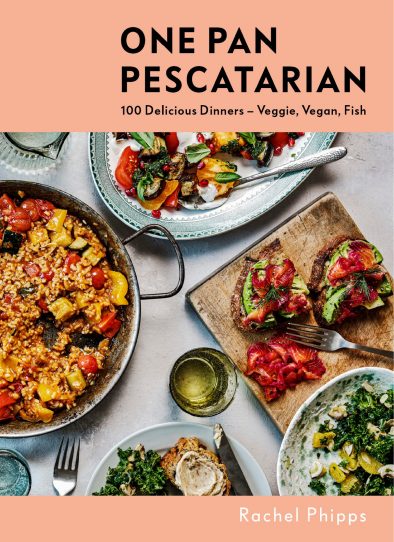
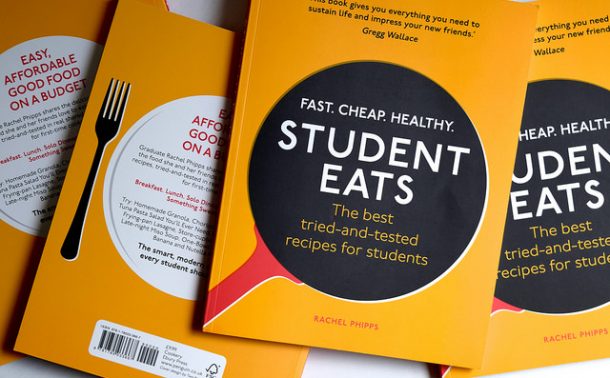
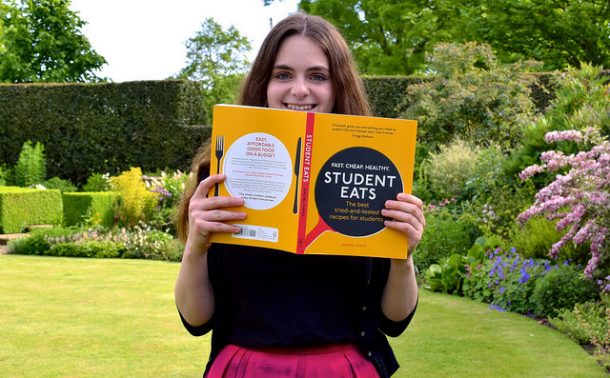
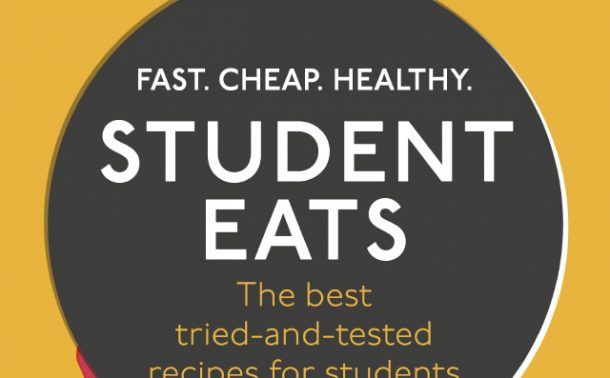
Discussion